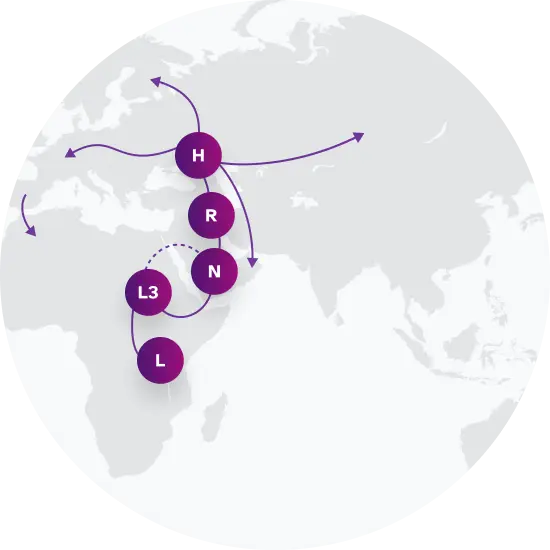Haplogroup H2
What is Maternal Haplogroup H2?
Haplogroup H2 is a genealogical group of lineages defined by unique genetic markers present in your mitochondrial DNA, which is transmitted from your mother. Your maternal haplogroup paints a picture of your ancient origins and the migrations of your ancestors. Although your maternal haplogroup reflects just one of your many ancestral lineages, it carries information about that lineage over tens of thousands of years.
Haplogroup H2 is descended from haplogroup H. Among 23andMe research participants, haplogroup H2 is commonly found among populations in the United Kingdom and Ireland.
It's important to note that your haplogroup doesn't define your current ethnic identity; rather, it provides an insight into your deep ancestry on the maternal side.
 Maternal Haplogroup Origins H
Maternal Haplogroup Origins HTop Surnames with Haplogroup H2
For surnames with sufficient representation in the data, these percentages represent the frequency with which each surname is found in individuals exhibiting this genetic marker.
Haplogroup H2 is linked to Luke the Evangelist
Historical evidence suggests that Luke the Evangelist, author of the Gospel according to Luke and the Acts of the Apostles, was born in the city of Antioch in ancient Syria in the first century C.E. He died and was said to be buried in Thebes, Greece, before his tomb was later transferred to Constantinople and then finally came to rest in Padua, Italy.In 2001, a team of researchers hoped to use DNA evidence to help verify that the relic in Padua was likely to be Luke the Evangelist, and had not been replaced with the remains of another man in Thebes or Constantinople. They did so by testing his mitochondrial DNA, which they found to belong to haplogroup H2a2b. They also confirmed that it was unlikely that the body had been exchanged for another in Greece, though they could not rule out that possibility in Constantinople.
 St. Luke in the Cologne Cathedral, Germany.
St. Luke in the Cologne Cathedral, Germany.